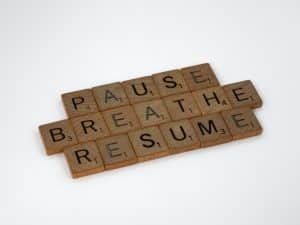
There’s a lot of talk out there lately about resilience. Also known as “grit,” it’s now being widely acknowledged as a critical deciding factor in success. Angela Lee Duckworth’s groundbreaking talk on the subject a few years ago introduced the topic into the wider vernacular(s) of education, business, and achievement overall, and there’s been no looking back. Resiliency is about being undaunted in the pursuit of a goal, no matter how challenging the obstacles you encounter along the way. It requires intense focus, hard work, and above all, unflagging hope. We all want to show that we are resilient — that we have “grit.” We want to be the person who didn’t give up, and made it as a result.
Some roads to success are really long, though. Like any journey, it is possible to make a wrong turn. What do you do when your internal GPS starts to tell you that you might be a few miles down the wrong road? Does your ego step in with its assessment of the situation, or does your intuition get to put some numbers on the board?
Setting goals is a mandatory part of MBA life. You can’t get into business school if you can’t talk about what you want to do after business school. Once you get to campus, you’re constantly asked to make choices based on where you eventually want to be, and to use your time in a strategic manner to get there. The upside of this model is that it offers the opportunity for introspection, and it requires that you focus amid the options-fest that is business school so that you might actually become gainfully re-employed as graduation approaches. The kicker is that few people find their path to those goals to be a smooth one, which often (repeatedly) begs the question, what does it all mean? What. Should. I. Do??
You’ve heard me talk about goals before, and the importance of crafting them from a place of strength and not a sense of lack. Business school is all about what you don’t have yet, though, so that can be a tough center to find – even more challenging when that center seems to move.
There is a concept often discussed in mindfulness called “acceptance.” I’ve also written a bit about this concept before in another context, but it’s applicable here as well. Acceptance, which has its roots in Buddhism but is not religious in nature, is about seeing things as they are, and recognizing when your efforts to change them may in fact be creating more struggle than solution. It’s not about giving up, but about tuning in to the signs that there may be other paths out there that are primed for your arrival.
As I said on Monday, there’s a difference between focus and tunnel vision. Focus – whether in meditation or in life – helps us tune out unnecessary distractions; tunnel vision pushes aside both distraction and intuition – both external and internal interruptions. Even with the best intentions of achieving your goal, you may miss the signs that something better for you is just around the corner.
Thing is – how do you tell the difference, right? How do you know when it’s time to recalculate, and program your path with a different destination? That’s the tough part, and sometimes, it really can be tough. Growing, changing, and becoming the person you want to be takes a lot of hard work, and there will undoubtedly be hurdles and course corrections along the way. Just because you hit a wall doesn’t mean you should give up. But, you do need to be open to the possibility that your journey there may look different than you thought it would, and may even include a few unplanned stopovers as you go.
And no, I’m not avoiding the question I posed a moment ago. The answer is simply, you will know. If you can find stillness and tune into your breath in that moment, sitting with the discomfort that your path is different than you had planned or hoped, your intuition will tell you what’s next. Your operating system came with GPS fully installed, and it updates on a constant basis, reloading every time you take a moment to catch your breath.
Photo credit: Annie Spratt




1 thought on “Recalculating”
Pingback: No-Fail Friday: Inner circle | MindfulMBA